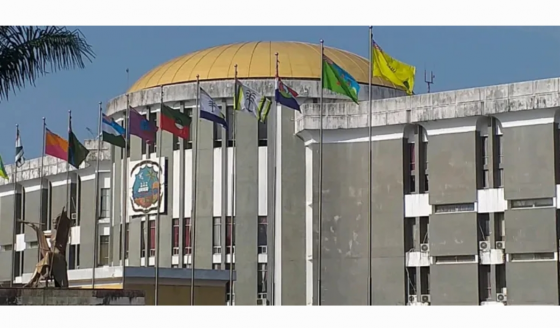Liberia: House Vets Bills on Student Loans, Death Penalty

— The National Student Loan Bill, submitted by Rep. Gray, is designed to help students pay for post-secondary education and the associated fees, such as tuition, books and supplies, and other educational expenses.
The House of Representatives has begun reviewing a bill that would enable the state to loan undergraduate students who demonstrate financial need to help cover the costs of higher education at a college or career school.
The bill, which has been sent to a joint committee room, is designed to help students pay for post-secondary education and the associated fees, such as tuition, books and supplies and other educational expenses.
The National Student Loan Program would be given with a very low interest rate and the repayment schedule may be deferred while the student is still in school. Beneficiaries will pay back the loan after graduation, plus interest, through salaries if employed.
The Committees on Education, Public Administration, and Judiciary, including Ways, Means, Finance, and Development Planning, are now scrutinizing the bill, and to report in a few weeks. The Joint Committee review will consider the terms of funding, the application process, disbursement, and repayment requirements associated with the loans.
The sponsor of the bill, Montserrado County District #8 Representative Acarous M. Gray, reminded his colleagues that the approved Education Act of 2011 calls for two cardinal executions: significant financing of the country’s education sector and, at the same time, a student loan program.
“Section 9.1 of the act calls for a National Student Loan Program to be established, and shall be funded through government budgetary appropriation, private donations, and contributions,” Rep. Gray said. “In case of any further substantial market failure or other severe external intervention, which adversely affects the Ministry's budget, the government shall consider as a priority an increase in the Ministry's budget to offset the negative impact on the budget.”
“On this issue of the 60 percent signature fees,” Rep. Gray added, “the education law also calls for concession agreements in the extractive mineral and other non-renewable resource sectors, as well as in the agriculture sector and in major privatization contracts, [to] include a negotiated fixed annual amount as social responsibility for education which, when paid, shall be made available as transfer and/or subsidy to the annual cost of education in Liberia.”
The House, in another development, has begun reviewing a request from President George Weah to have the country eliminate the death penalty. The President submitted “An Act to amend Title 26 of the Liberian Codes of Law Revised, Penal Law Chapters 11, 14, 15 and 50 relating to Sentencing and Death Penalty”, to abolish the death penalty.
Liberia has been under a de facto moratorium on executions since 2000. The death penalty remains in the Penal code of Liberia of 1976 (amended in July 2008) and the crimes punishable by death (only when they result in death). It is estimated that there are 14 people on death row in Liberia at the end of 2019.
In a communication to the House of Representatives, President Weah stated that Liberia is a signatory to the Second Optional Protocol of the International Convention on Civil and Political Rights which, inter alia, calls for the abolition of “Capital Punishment” as a practice by state-party.
“In consideration thereof, I request that you kindly enact into law this important legislation aimed at abolishing the death penalty,” President Weah said. “Liberia has practiced a de facto abolitionist stand for a considerable period, particularly during the period of instability and state fragility. However, during the third cycle of the Universal Periodic Review (UPR), Liberia finally accepted the UPR recommendation to abolish the death penalty as capital punishment.”
The UN Human Rights Council, Amnesty International, and other international organizations stated that the death penalty is the ultimate cruel, inhumane and degrading punishment. They indicated that the death penalty breaches human rights, in particular the right to life and the right to live free from torture or cruel, inhumane, or degrading treatment or punishment. Both rights are protected under the Universal Declaration of Human Rights, adopted by the UN in 1948.
Although international law says that the use of the death penalty must be restricted to the most serious crimes, meaning intentional killing, Amnesty believes that the death penalty is never the answer.
Meanwhile, following the first reading of the President’s request, the House of Representatives unanimously voted to forward the “Act relating to Sentencing and Death Penalty” to the Committees on Judiciary, Good Governance, and National Security, to report within two weeks.
